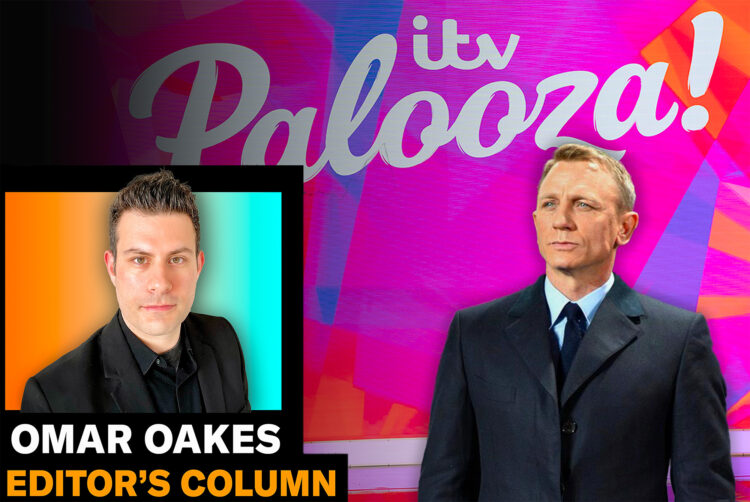AI disruption coming to TV makes ITV sale even more important

100% Media 0% Nonsense
ITV carries immense cultural power that makes a sell-off far from straightforward.
What a shame ITV chose not to host its annual Palooza upfronts this year.
I don’t say that because it’s one fewer chance to rub elbows with celebrities (I barely recognise most of them nowadays anyway); and I certainly don’t mind missing content chief Kevin Lygo’s ritual “embarrassing dad” act.
But the event had begun to provide real substance and learnings for industry watchers.
Clearly, the broadcaster is in a quieter mood this year as it expects total ad revenue to fall by up to 7% this quarter (albeit up by 2.5% for the year). Speculation of a takeover is now rife, with reported discussions about ITV being broken up into a studios business and a commercial network that might attract a Big Tech or private equity owner.
All of which makes good fodder for share-price watchers and national news brand journalists who are good at making friends with bankers who benefit from company sales.
But events like Palooza paint a truer picture of what a company like ITV does nowadays and why it’s important.
Decline of upfronts
Last year’s big announcements told a story of ITV attempting to transition from media owner to media partner.
It revealed the launch of a branded content studio to encourage more co-created projects with advertisers and measurement products to enable brands to better analyse how TV advertising contributes to sales.
Advertisers desire a greater variety of tactics to stand out in broadcast media while placing greater demands to prove their media spend works. In a world where you can buy online ads quickly and measure their impact in real time, it’s no longer acceptable to commit millions on TV without greater proof that “TV works”.
Hence why we no longer use the word “upfronts” to describe such an event. Less TV money is promised up front — especially when audiences are in long-term decline for “linear” scheduled viewing.
ITV is, of course, a listed company. CEO Dame Carolyn McCall is incentivised to maximise value for shareholders and is not beholden to as restrictive a remit as the publicly owned BBC and Channel 4. But McCall knows ITV is a flagship UK business that is part of the nation’s fabric.
Its future as a public-service broadcaster matters just as much to the UK creative economy.
Bates superpower
Take Mr Bates vs The Post Office.
It’s hard to imagine such a masterpiece being created by Netflix, which has a track record in pumping out docudramas that play fast and loose with the concept of “based on a true story”.
Unlike The Crown, whose final season portrayed the Queen and Prince Charles talking to ghosts, Mr Bates… was motivated by a showrunner who wanted to tell a UK audience what really happened and who said what to whom when.
Such a scandal needs no adornments: the most incredible stories are often 100% factual if you have the skill and bravery to unearth them.
And there lies ITV’s true value: the UK needs a strong national broadcaster that understands its audience and has the talent to tell such a story.
Black Mirror-style AI rendering by ‘end of the decade’
Sky Media’s upfronts-style event last week was fascinating, too, in one other respect.
Anthony Davies, who is MD of Global dDesign at Sky and its parent Comcast, delivered one of the most thought-provoking talks I’ve seen while covering this industry in the last decade.
Noting the initial scepticism that Sky bosses had for an idea in 2012 to market a TV that would stream television via apps using home Wi-Fi, Davies noted that Sky Glass was an idea sitting on the shelf for years. Its launch in 2021 was motivated by rumours that Apple would soon launch a TV after the success of the iPhone and iPad.
Davies reminded us that great ideas are worthless until they are thrust into reality. Just as the world wasn’t ready for Sky Glass nine years ago because not enough people had fast internet at home and broadcasters hadn’t created streaming services delivered by apps, there are many ideas that already exist but are not yet ready.
And TV is going to see significantly change over the next decade due to generative AI.
Whereas a single frame of a Disney Pixar film would take almost a day to render, some AI tools can achieve the same result within seconds. Once AI can produce 60 frames per second, you have the ability to change all sorts of elements of a TV programme in real time.
This is almost exactly what Netflix’s Black Mirror portrayed last year: it won’t be long before TV creators can use data to create moving images within hours and even buy celebrities’ image rights to have, say, Salma Hayek act out what you did hours earlier. Even if (or perhaps especially if) you chose to relieve yourself in a church.
“At the end of the decade, it’s starting to become clear: we think AI is going to radically change what content is,” Davies said. “We’ll have a TV that’s been reinvented, re-energised and transformed to be profoundly interactive, profoundly personalised, as the third screen in your life.”
If you feel like TV has disappeared from the work water-cooler conversation, wait until everyone is curating their own version of Bake Off and uploading them to social media.
Amazon: Big ‘if’ for an ITV deal
As astonishing as such innovation may be, technology is a tool.
Tools are invented but, sooner or later, become an undifferentiated commodity. Whether you’re a billionaire or simply not destitute, everyone pretty much has the same sort of phone in their pocket. Netflix was the future once and now every broadcaster has launched a Netflix-style app.
What matters is the cultural capital and commitment to invest in creative that only a national broadcaster like ITV can bring. If a Big Tech player like Amazon were to swoop for ITV, which makes sense as a way to bolt on a strong commercial team to its fledgling UK TV operation, it must protect what makes ITV special.
Amazon just so happens to own James Bond through its ownership of MGM. Bringing Bond to a future ITV Palooza and committing to preserve the broadcaster’s superpower as the UK’s pre-eminent commercial media player would be just the sort of statement this industry needs.
Content always wins in the long run because storytelling transcends tech. And so many of our stories are rooted in national identity, even if our media business is not.
It’s the best of British.

Omar Oakes is UK editor-in-chief of The Media Leader and was nominated for B2B Columnist of the Year 2024 by the British Society of Magazine Editors. 100% Media 0% Nonsense is a weekly column about the state of media and advertising.



